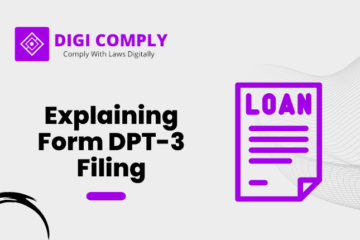Performing consistent internal audits is a fundamental practice that holds tremendous significance for businesses aiming to accomplish their corporate objectives. These audits serve as a critical tool for organizations to evaluate the consistency of their best practices, allowing them to identify areas for improvement and ensure strict adherence to corporate policies and procedures. Unlike external audits, which are conducted by independent third-party firms, internal audits are carried out within the organization itself, primarily using internal resources. However, in order to achieve optimal efficiency and expertise, many companies in Dubai opt to outsource their internal audit functions to the leading audit firms in the region.
Internal audits play a pivotal role in the comprehensive review of an organization’s internal controls, processes, and operations. The primary objective is to assess the effectiveness of the company’s internal controls, corporate governance, and accounting processes, ultimately contributing to enhanced risk management and operational efficiency. By examining these aspects, internal auditors are able to identify any potential gaps or weaknesses in the internal controls, enabling management to take proactive measures to address these issues before they escalate. Furthermore, internal audits facilitate the identification of flaws in various processes, allowing for timely corrections and improvements to be made, thus ensuring consistent quality throughout the organization.
An essential aspect of internal audits is their ability to complement external audits. By conducting regular internal audits, organizations can proactively identify and rectify any process flaws or compliance deficiencies before external auditors arrive. This not only enhances the overall efficiency of the business operations but also instills a sense of confidence among stakeholders, including shareholders, regulatory bodies, and clients.
To effectively perform an internal audit, organizations are encouraged to follow a systematic approach encompassing several key steps.
Firstly, it is crucial to identify the specific areas that require auditing, as auditing every single process within the organization may not be feasible or practical. By identifying and prioritizing the areas that have the most significant impact on the organization’s growth and success, resources can be efficiently allocated to maximize the benefits of the internal audit process. Collaborating with reputable internal audit firms in Dubai can provide valuable guidance and expertise in this regard.
Determining the frequency of audits is another critical factor to consider. Different areas within the organization may require audits at different intervals, depending on their inherent risks and the level of scrutiny necessary. For instance, areas associated with quality control may necessitate more frequent audits, while financial processes may require less frequent assessments. By carefully assessing the requirements of each area, organizations can establish an optimal audit frequency that ensures comprehensive coverage while minimizing disruption to ongoing operations.
Planning and scheduling play a vital role in the successful execution of internal audits. Creating a well-defined audit calendar enables organizations to allocate resources, plan engagements, and avoid conflicts with other critical processes or projects. This ensures that the necessary team members and stakeholders are available and prepared for the audit activities. Moreover, an audit calendar helps maintain an organized and structured approach throughout the auditing process, ensuring that no crucial area is left unaudited or overlooked.
It is essential to notify the relevant departments in advance of scheduled internal audits. This advance notification allows the departments to prepare the required documentation, gather supporting evidence, and be fully engaged in the audit process. Timely communication of the audit activities demonstrates respect for the team members’ right to be informed and actively participate in the organization’s activities. However, in exceptional cases where the audit involves suspicious activities or potential fraud, the element of surprise may be necessary, and the advance notification can be omitted to preserve the integrity of the audit process.
Recording and analyzing audit findings form a critical step in the internal audit process. Once the audit is completed, the findings should be carefully documented to serve as a comprehensive record of the audit outcomes. This documentation facilitates a detailed analysis of the effectiveness of the organization’s processes and controls. By thoroughly reviewing the findings, organizations can gain valuable insights into areas that require immediate attention and improvement, as well as identify trends or recurring issues that may warrant further investigation or remediation.
The investigation, development of action plans, and their subsequent implementation constitute a crucial phase following the audit findings. It is imperative to investigate the root causes of identified issues and formulate action plans accordingly. The level of risk associated with each issue should guide the depth and intensity of the investigation. By adopting a meticulous and efficient approach, organizations can identify the underlying causes and implement targeted action plans to rectify the issues promptly. To ensure the accuracy and effectiveness of the audit findings, organizations may choose to engage the expertise of the best audit firms in Dubai.
Conducting an effectiveness review and follow-up audits are the final steps that organizations should prioritize. These activities allow for a comprehensive evaluation of the implemented action plans and their impact on improving processes and controls. Additionally, conducting follow-up audits serves as a reminder of any outstanding issues that require immediate attention. By maintaining a streamlined and standardized audit process, organizations can adhere to compliance standards and industry best practices, instilling confidence among stakeholders and fostering a culture of continuous improvement.
In conclusion, consistent internal audits are invaluable for organizations seeking to achieve their corporate objectives. By undertaking thorough internal audits, organizations can analyze the effectiveness of their best practices, ensure adherence to corporate policies, and identify areas for improvement. Internal audits complement external audits by proactively addressing process flaws and compliance deficiencies. By following a structured approach and collaborating with leading audit firms, organizations can optimize the internal audit process, resulting in enhanced operational efficiency, fraud prevention, and alignment with industry standards and best practices.
If You have any queries then connect with us at support@legalsuvidha.com or info@digicomply.in & contact us & stay updated with our latest blogs & articles





